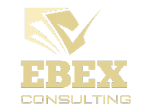Choosing the right accounting software for your small business is crucial for managing your finances efficiently. Here are steps to help you choose the right accounting software:
- Assess Your Business Needs: Determine the specific accounting tasks you need the software to handle. This may include invoicing, expense tracking, payroll processing, inventory management, budgeting, tax preparation, etc.
- Consider Ease of Use: Look for accounting software with an intuitive interface that is easy to navigate. This is especially important if you or your staff are not accounting experts.
- Check Compatibility: Ensure that the accounting software is compatible with your existing systems and software. It should integrate seamlessly with other tools you use, such as banking software, CRM systems, or e-commerce platforms.
- Evaluate Features: Consider the features offered by the accounting software and whether they meet your business requirements. Some common features to look for include:
- Invoicing and billing
- Expense tracking
- Bank reconciliation
- Financial reporting
- Inventory management
- Payroll processing
- Tax preparation
- Multi-currency support (if you do business internationally)
- Scalability: Choose accounting software that can grow with your business. Consider your future needs and ensure that the software can accommodate increasing transaction volumes, users, and business complexity.
- Cloud vs. On-Premises: Decide whether you prefer cloud-based accounting software or an on-premises solution. Cloud-based software offers benefits such as accessibility from anywhere with an internet connection, automatic updates, and scalability. On-premises software gives you more control over your data but requires upfront investment in hardware and maintenance.
- Security: Prioritize security features to protect your financial data from unauthorized access or breaches. Look for accounting software that offers encryption, regular backups, user permissions, and compliance with data protection regulations.
- Cost: Consider the cost of the accounting software, including upfront fees, subscription or licensing costs, and any additional charges for extra features or support. Compare pricing plans from different vendors and choose one that fits your budget.
- Customer Support: Choose accounting software from a reputable vendor that offers reliable customer support. Look for options such as phone support, email support, live chat, knowledge base, and training resources.
- Read Reviews and Get Recommendations: Research accounting software options online and read reviews from other small business owners. Get recommendations from peers, accountants, or industry experts who have experience with the software.
By following these steps and thoroughly evaluating your options, you can choose the right accounting software that streamlines your financial processes and helps you manage your small business effectively. If you are also looking for some help in choosing the right accounting software for your business, you can always contact us at ebex consulting for free consultation. We are providing the accounting services to several clients in Gurgaon and Delhi.


